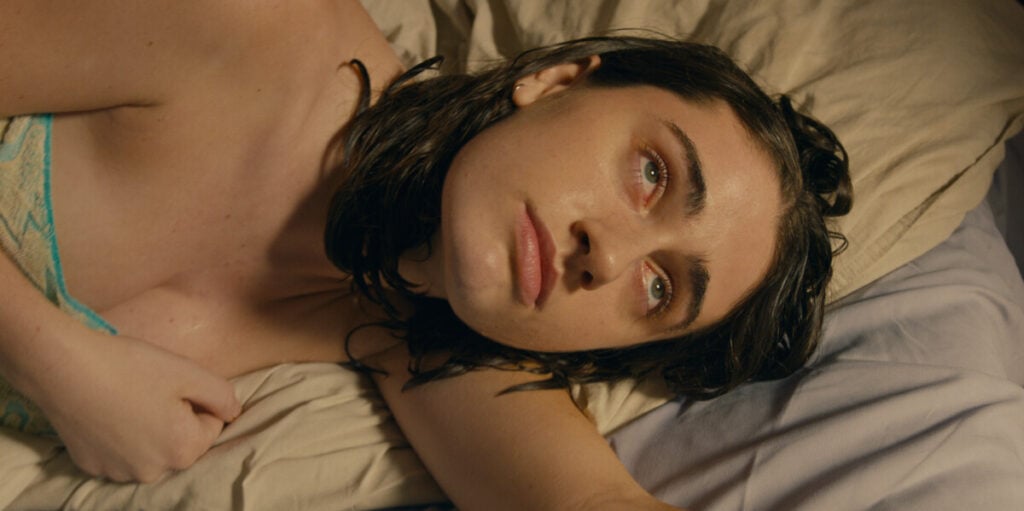Comedy is inherent in calling on personal experiences for a joke. Humor is a defense mechanism and a willing tool to break the ice and even recover. Comedy is healing and is used significantly in the film I Used To Be Funny. In a somewhat dark comedy set against the backdrop of the #MeToo era, the film stars Rachel Sennott as a struggling comic battling PTSD who takes part in a search for a missing girl she used to nanny. The film tackles heavy subject matter with airy deftness, and what ties it together is Sennott’s arresting performance. In an edgy and humorous film, I Used To Be Funny takes center stage as one of the year’s best.
Among the many glowing attributes I Used To Be Funny has going for it is Rachel Sennott and her quiet, visceral performance. There are supporting players around her, but this is her show, and she commands and dominates it. In addition, the film arranges itself through a nonlinear structure. Telling a story through intermittent flashbacks is risky, as the audience can lose focus of the central thread. Fortunately, Sennott is front and center. She plays sanguine and melancholy in a timeline that blurs together to create one vivid and arresting portrait.
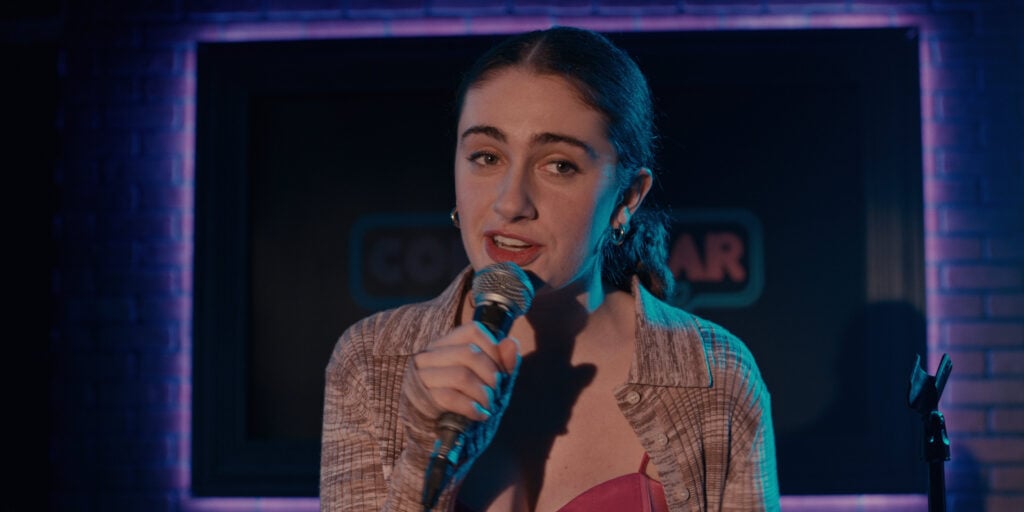
We first meet Sennott, who plays Sam, amid her ongoing PTSD struggles. She is at her lowest point, following an unspoken event that reveals itself through flashbacks. As an audience member, we can see Sam’s pre-PTSD during these moments. She is vibrant and happy, working the stand-up circuit as an up-and-coming comic. To supplement her income, she works as an au pair for a teenage girl, Brooke (Olga Petsa), whose mother is dying of cancer, and her father (Jason Jones) is consumed with hospital care and work.
The film establishes a sisterly bond between Sam and Brooke, which ultimately has a consequential fallout. The result leaves Sam in free fall. She quits comedy, moves in with her two friends, and seemingly always stays in the house. However, when Brooke goes missing, despite their fractious history, Sam decides to join the search and bring her home. I Used To Be Funny wrestles with an internal reckoning and puts Sam on a path to recovery. Her bond with Brooke seemingly becomes her north star, centering all that is wrong in her life. The film carries a double meaning; with Sam finding Brooke, she, in turn, finds herself.
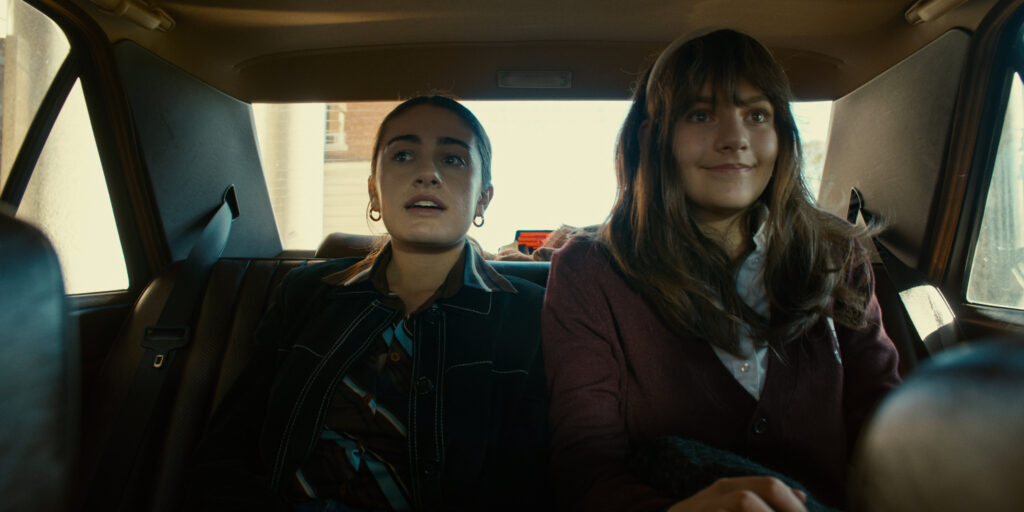
There is always the risk of melodrama in movies balancing heavy themes. Luckily, this film steers clear of those clichéd pratfalls and makes this a character study on trauma, endurance, and recovery. Moreover, keeping the event that shattered Sam a mystery may not be as shocking as it is in a thriller. Instead, this film becomes less about a mystery and more about exploring the life of a woman who finds that the world itself is far from a funny place despite her vocation.
Near the end, Sam delivers a monologue that, unexpected in its intimacy, creates a perfect arc for the character as she wrestles with her past trauma. Here, Sennott showcases her full dramatic potential. There is a sense of building frustration amid her self-pity that her friends call her out on and have a heart-to-heart conversation that feels authentic. Sennott’s dialogue is never verbose; what some actors accomplish through pages of script, Sennott manages with a single bewitched stare. It is a full-weighted performance that never falls into the over-dramatic but is balanced with neorealism. She masks genuine pain through awkward jokes. Sennott is captivating in every frame of the film, dealing with many emotions and intricate plotlines.
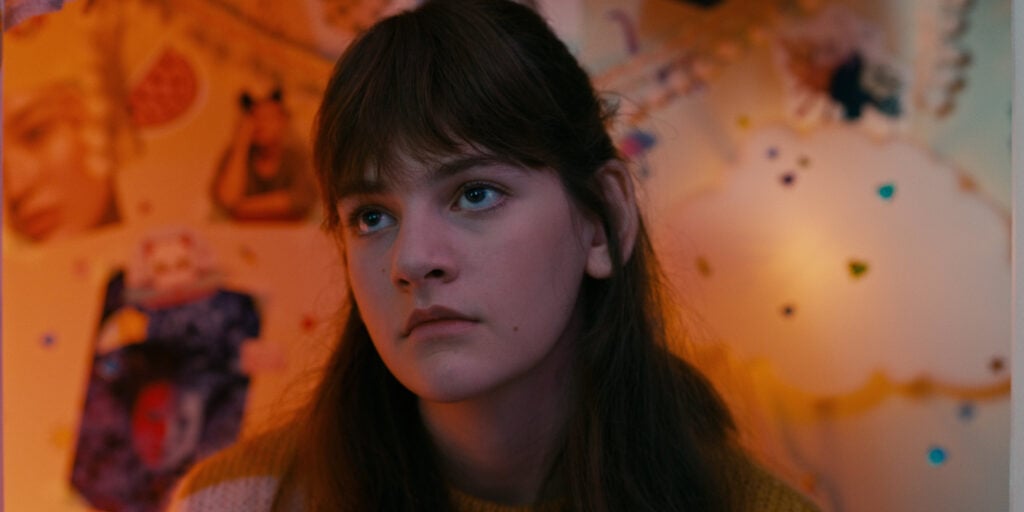
The storyline does not break new ground, but the performance elevates the narrative. The use of humor adds another layer to the film. Sennott is naturally funny, and seeing her broken and rejecting her livelihood and passion in the movie is heartbreaking. The film invites the audience into the world of Sam, and Sennott crafts a character who, despite her circumstances, refuses to lay wrapped in her pain and suffering. For a comic, there is some beautiful poetic justice in her getting the last laugh.
I Used To Be Funny will strike several chords throughout its runtime. The use of humor is effective at addressing the challenging and sensitive subject matter. The film is never preachy but earnest in its study of a woman attempting to rebuild her life. This stirring and humorous story allows Rachel Sennott to reach dizzying heights. There is an element of dark beauty laced throughout the movie that cultivates the perfect balance of tension and levity.
I Used To Be Funny is currently playing in theaters courtesy of Utopia. The film is also available on digital platforms.
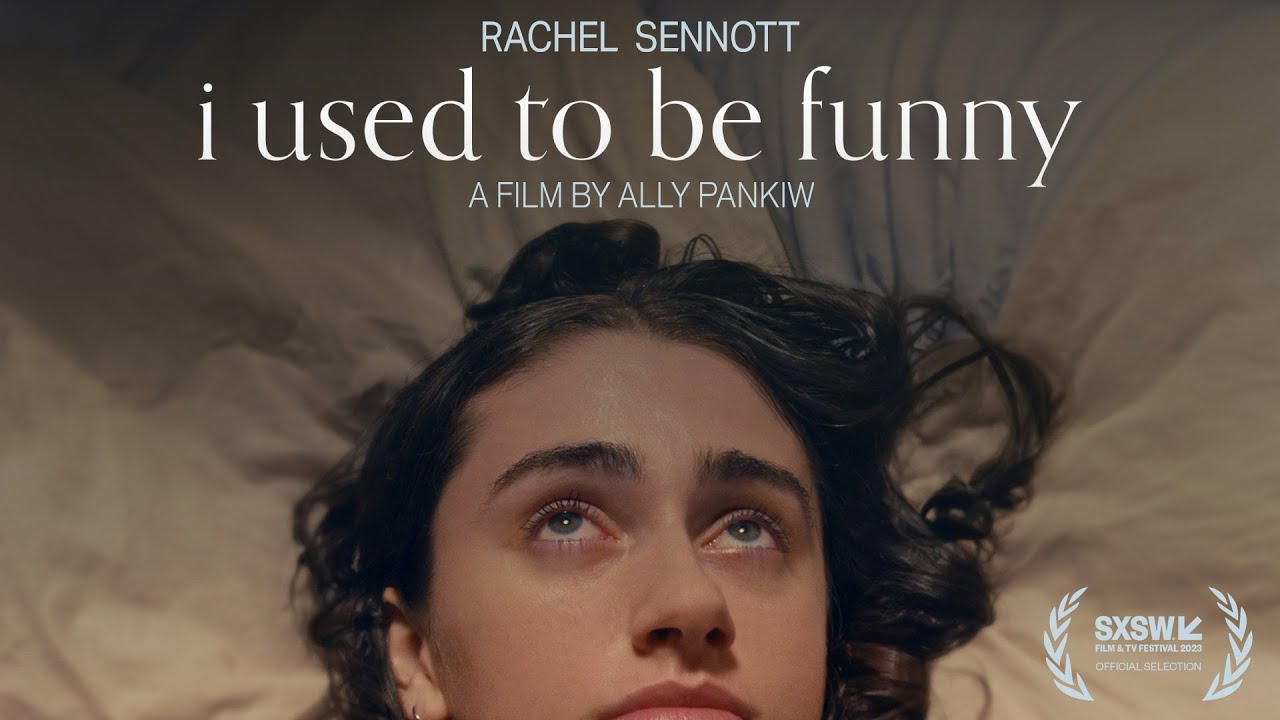
I Used To Be Funny will strike several chords throughout its runtime. The use of humor is effective at addressing the challenging and sensitive subject matter. The film is never preachy but earnest in its study of a woman attempting to rebuild her life. This stirring and humorous story allows Rachel Sennott to reach dizzying heights. There is an element of dark beauty laced throughout the movie that cultivates the perfect balance of tension and levity.
-
GVN Rating 9
-
User Ratings (1 Votes)
9

Writing & podcasting, for the love of movies.
His Letterboxd Favorites: The Dark Knight, Halloween, Jaws & A Christmas Story.


